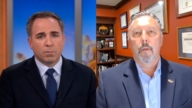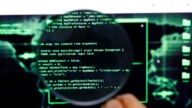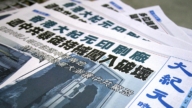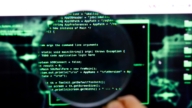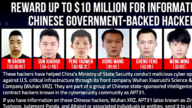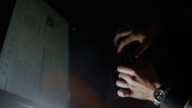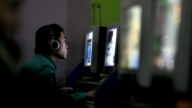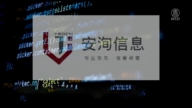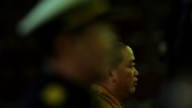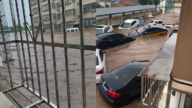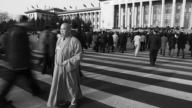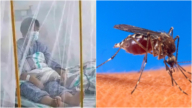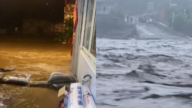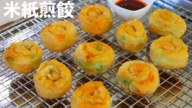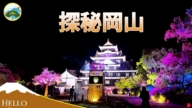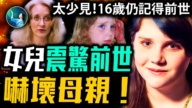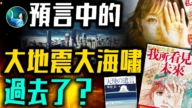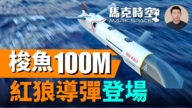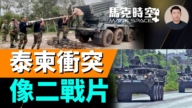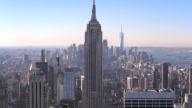【新唐人2015年01月28日讯】国际记者联会(IFJ)日前公布2014新闻自由年报,称中国和香港等地的新闻自由状况,从本来已经恶劣的环境,进入更严峻的状态。评论认为,这与中共自身的危机感有很大关系。
国际记者联会(IFJ)1月26号,针对当前中国大陆、香港及澳门等地的新闻自由状况,发布年度报告。报告显示,中共当局去年对大陆媒体采用了更多的镇压措施,加强了中国新闻的审查力度,和网路言论监控,以及骚扰、威吓等。
报告还提到,中共从去年初整肃网路至今,已经有至少2200多家网站和300多个视频及栏目被关闭,微信等社交网路平台也遭到屏蔽,删除的信息更多达2000余万条。
原《陕西电视台》记者马晓明表示,敢于触犯中共敏感问题的媒体人,更是被残酷打压,甚至被投入监狱、被杀害等。马晓明本人也因长期关注各个阶层的维权民众,曝光地方政府强征、强拆,揭露中共公检法枉法滥权等罪恶,屡屡遭打压。
原《陕西电视台》记者马晓明:“这十多年来我一直关注这些事情,无偿的把这些事情披露出去,我被打过,打过还不只一次,被扣押过,照相机被没收,胶卷抽出来曝光没收,被审讯、被关押、被劳教这是多次,而且每年像两会、清明节、六四纪念日等等,这样的日子就被限制自由。”
马晓明说,自己最近因关注当地一桩集资诈骗案,再次遭到打压。
马晓明:“2014年12月31号,有上千的集资诈骗受害者在省政府请愿,一个警察和请愿者推搡期间,有一个像是老年的人倒地了,请愿者就往摔倒的人那个地方赶过去,我也就过去了,这个时候就有警察把我给抓住,扣了我有一个小时,照片全被删除才把我放了。”
去年12月17号,总部设在纽约的保护记者委员会,发布全球新闻自由状况年度报告称,中国是世界上监禁记者最多的国家,而且对外国记者的限制也越来越多。
去年9月底开始的香港占领运动,国际记者联会至少录得39宗香港记者遭受警方,或反占领示威者的殴打、骚扰、扣押或恶意指控个案。
一名香港记者说,北京在“占中”运动期间,“粗糙且毫不掩饰”地干涉媒体报导,透过驻港官员施压、干预编采过程,“多数媒体没有抵抗……香港媒体已经屈膝臣服了。”
自由撰稿人朱欣欣分析,中共当局对新闻自由环境进行更严酷的打压,与它自身的危机感有很大关系。
自由撰稿人朱欣欣:“每到它的危机加深的时候,它肯定要对环境进一步的钳制,因为它唯恐人们传播自由媒体的思想,同时对某些具体的社会事件发表自己的看法,使人们的精神和思想能够自由的交流,使民间的思想达到共识,得到统一的时候,很可能转化成具体的行动,所以中共对这十分的恐惧。”
朱欣欣表示,香港是中国的一部分,占中运动对危机四伏的中国社会,造成很大震动,中共非常害怕这种民主运动蔓延到大陆。
大约两周前,美国作家团体“美国笔会中心”发表报告说,香港媒体面临“越来越高的风险”,包括人身遭受攻击以及网路袭击。
1月12号凌晨,香港媒体大亨黎智英住宅被人投掷汽油弹,他旗下的《苹果日报》也多次成为攻击目标﹔去年2月,《明报》前总编刘进图在街头遭凶犯砍杀,身中六刀,引起香港社会极大震惊。
国际记者联会在一份声明中提醒中国和香港商业机构,自由及独立的媒体,在商业环境中扮演了重要的角色,新闻自由是一种人权, 媒体必须能在没有恐惧和不受威胁的情况下履行专业职责。
http://bit.ly/1JUyKaj
采访编辑/李韵 后制/钟元
IFJ: China Press Freedom Worsens
The International Federation of Journalists (IFJ) released
the 2014 report of press freedom in Mainland China,
Hong Kong and Macau.
According to the report, the Communist regime has adopted
more repressive measures.
Critics believe it is related to the great sense of crisis
within the Chinese Communist Party (CCP).
IFJ’s seventh annual China Press Freedom Report indicated
that, direct censorship, internet surveillance, harassment
and intimidation are continuing to take place in China.
Further online restrictions in 2014 saw 2200 websites forced
to shut down.
An additional 300 video channels were also forced offline.
On social platforms such as WeChat, at least 20 million
messages were deleted, said IFJ.
Former Shaanxi TV reporter Ma Xiaoming says that
journalists who dare to touch on sensitive issues of the CCP
are being brutally suppressed, imprisoned and even killed.
Ma himself has experienced frequent suppressions
due to his reports of rights defending activities in China,
uncovering forced acquisition and demolition by local
government, and exposing capricious abuse of power
by the CCP legal systems.
Ma Xiaoming: “I have reported on these issues
for more than ten years.
I have been beaten more than once.
I was jailed, my camera was confiscated, my negatives
were exposed and confiscated.
Interrogation, detention, and labor camp are frequent;
especially during the two sessions, the Cold Food Festival,
the Tiananmen Massacre, and etc.,
I would be restricted of freedom."
Ma Xiaoming explains that he has recently been suppressed
again during a local fund-raising fraud report.
Ma Xiaoming: “On Dec. 31, 2014, thousands of the
victims of fraud petitioned to the provincial government.
During the chaos, an elderly fell. We all went to the elderly
but the police caught me and detained me for an hour.
They did not release me until my photos were deleted."
The Committee to Protect Journalists reported
on Dec. 17, 2014 that China is world’s worst jailer of the press.
Beijing has also issued more restrictive rules
to international journalists.
During the Occupy Movement in Hong Kong that began in
late September the IFJ noted at least 39 incidents in which
journalists were harassed, assaulted, detained or maliciously
accused by Hong Kong police and anti-Occupy Movement protesters.
A Hong Kong journalist said that interference from Beijing
was “raw and undisguised" with officials based in Hong Kong
putting pressure on reporters during the protests,
and “Most of the media did not offer resistance…
the Hong Kong media have already half-knelt."
Freelance writer Zhu Xinxin analyzes the even more severe
crackdown on the free press is highly related to CCP’s
sense of crisis.
Zhu Xinxin: “Whenever its crisis is deepened,
it is certainly further tightening the conditions.
It fears the idea of free press and the expression of views.
When people reach consensus via exchange of ideas
and minds, it frightens the CCP that it could transform
into concrete actions."
Zhu Xinxin says that Hong Kong’s occupy movement is a great
shock to the problematic Chinese society.
This democratic movement is a huge threat to the CCP.
According to PEN American Center’s report,
Hong Kong’s press freedom is increasingly insecure
due to physical violence against journalists
and cyber attacks against online media.
On the morning of Jan. 12, Hong Kong media mogul Jimmy Lai
was targeted by unidentified attackers on Monday,
with petrol bombs at his residence and the office
of the newspaper he founded, Apple Daily.
In February of 2014, the former chief editor of Ming Pao
newspaper, Kevin Lau was shockingly attacked
by unidentified attackers with a cleaver.
The IFJ reminds the business sectors of the Mainland
and Hong Kong that a free and independent press
plays an important role in the business environment.
The IFJ said, “Press freedom is a human right and the media
must be able to perform their professional duties
without fear and intimidation."
Interview & Edit/LiYun Post-Production/ZhongYuan



